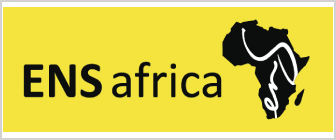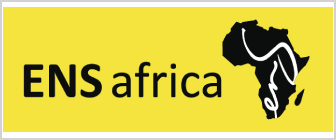Robert Gad, Alexa Muller and Megan McCormack of ENSafrica look at the impact on South African individuals, trusts and companies featured in the recent Panama Papers leak
A number of South African individuals, trusts and companies feature in the recent data leak involving clients of Panamanian law firm Mossack Fonseca. Although the publication of the data by the International Consortium of Investigative Journalists does not allege any violation of tax laws or exchange control regulations by those identified in it, the South African Revenue Service (SARS) and the South African Reserve Bank (SARB) have indicated that they will be investigating the tax and exchange control affairs of these South Africans. As a result, those named in the leak should consider urgent steps to address any potential tax or exchange control transgressions.
According to a recent IOL report, SARS has already identified 1700 of the South Africans listed in the leaked data, which is publicly available on the International Consortium of Investigative Journalists’ website. The SARB is also reportedly in the process of checking the leaked information against its cross-border reporting records
It appears from IOL’s discussions with SARS and the SARB representatives that the timeline of their investigations could be such that most of the listed South African individuals, trusts and companies will not be able to make use of the special tax and exchange control voluntary disclosure programmes ('special VDPs') to regularise their affairs if required. These special VDPs are scheduled to begin on October 1 2016.
SARS and the SARB have indicated that they hope to formally approach the relevant South Africans before the commencement of these special VDPs. This is significant, as:
- for tax purposes, the proposed special VDP will not be available in respect of, inter alia, any amount that has directly or indirectly funded an asset that has been disclosed to SARS under an international tax agreement prior to an application. It also excludes taxpayers who are aware of a pending audit or investigation in respect of foreign assets or foreign taxes, or where such an audit or investigation has already commenced;
- for exchange control purposes, the special VDP is unlikely to be available to any South African resident who is the subject of any current and/or pending investigation by the SARB into their exchange control contraventions
There is thus significant risk in waiting for the commencement of the special VDPs if there is a need to regularise tax or exchange control issues.
A VDP is currently available under the Tax Administration Act, 28 of 2011 ('the TAA'), which might deal with some aspects of cross-border tax contraventions, albeit on different terms to the special VDPs. There are also informal processes in place within SARB, in terms of which South Africans may apply to regularise any exchange control contraventions.
As mentioned above, those named in the data leak should consider urgent steps to regularise any potential tax or exchange control transgressions. This can be done by submitting an application to SARS and/or the SARB through one or both of the aforementioned existing channels provided such an application is submitted before these authorities initiate formal investigations into the relevant South Africans' affairs. This may potentially allow such South Africans to avoid criminal prosecution and/or save themselves from a large portion of the penalties that SARS and the SARB will undoubtedly seek to levy, should they discover any tax or exchange control transgressions during the course of their investigations.
Robert Gad
Director
Tax | corporate, indirect, disputes and share schemes
About the author
Robert Gad is a director at ENSafrica in the tax department and specialises in corporate tax, share incentive schemes, mergers and acquisitions, private client, VAT and tax litigation. He is Chairman of the South African Law Society's Committee on Exchange Control and Tax Matters.
Alexa Muller
Associate
Tax
About the author
Alexa Muller is an associate at ENSafrica and is an attorney in the tax department. She specialises in corporate and international tax, including the tax implications of local corporate restructures, advising clients on the South African tax implications of cross-border investments and researching the tax laws of various jurisdictions in order to suitably advise clients on international as well as local transactions and investments.
Megan McCormack
Associate
Tax
About the author
Megan McCormack is an associate in the tax department at ENSafrica. She specialises in general corporate tax, including corporate structuring and corporate funding arrangements, employee share incentive schemes and tax dispute resolution.



